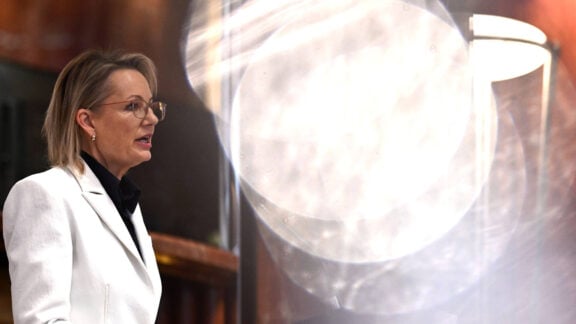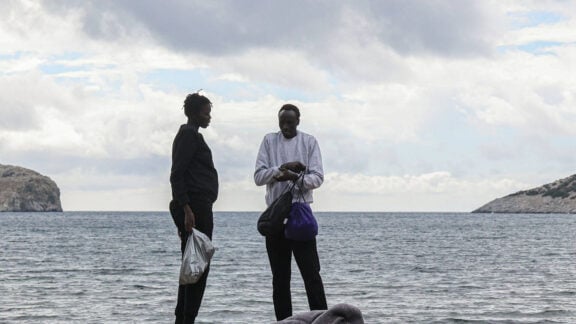During the Euro debt crisis the German finance minister Wolfgang Schäuble was the most hated foreign politician in Greece.
Although his Liberal successor in the new German government, Christian Lindner, doesn’t face a wave of hate, he is distrusted. Greeks have not forgotten that during the debt crisis Lindner accused Schäuble of being too lenient with Greece. Lindner demanded at the time to throw Greece out of the Euro zone, comprising 19 of the then 28 EU countries. That was Schäuble’s intention, anyway, but it was prevented by Chancellor Angela Merkel.
Although no one speaks of a Grexit any more, Lindner will be a weighty player when the European Union discusses reform of its Stability and Growth Pact in the coming months. This set of rules aims to ensure that EU countries pursue sound public finances and coordinate their fiscal policies.
READ MORE: No tears lost over Angela Merkel as Greeks look back on the era of the quitting chancellor
Greece wants more flexible deficit rules and a loosening of the upper debt limit. Presently that stands at 60 per cent of Gross Domestic Product. Greece’s national debt stands at 207 per cent of GDP. The EU Commission has calculated that Greece will drop to 60 per cent at the earliest in 2060.
The Greeks are not the only ones wanting a higher debt ceiling. Of the 27 EU states currently only 14 obey the rules of the stability pact. Economists of the European Stability Mechanism suggest raising the cap to 100 per cent of GDP.
In regard to deficit and debt provisions of the pact Lindner is seen as a relentless advocate of a strict stability course. He has no time either for Eurobonds, i.e. a “debts union”. The new German finance minister, who belongs to the pro-business FDP Liberal party, is less pro-European and in budget discipline even tougher than Schäuble was, commented the Athens daily Kathimerini.
Germany’s weight in the EU may lessen post-Merkel and countries like France and Italy may become more influential. Greece is likely to bank on that. Observers expect that in the debate about reforming the stability pact a “southern alliance” of France, Italy, Spain, Portugal, Cyprus and Greece will form. Their common denominator is not just their location in southern Europe. They’re also the six EU states with the highest national debts.
READ MORE: So long, farewell, auf Wiedersehen, good night, Herr Schäuble
Lindner is also likely to frustrate Greece on one of its red-hot disputes with Germany: its demand for reparations for the Nazi horrors perpetrated in World War Two.
Regardless of their political stripes, all previous German governments have refused to bite that bullet, rejecting the claims point blank.
The Greek state claims of 289 billion euros from Germany. In April, the Greens who have the foreign ministry headed by their co-leader Annalena Baerbock, and vice-chancellorship in the tripartite government made a move to try to unlock the rigid positions.
They argue that Germany should not be allowed to keep responding “only with silence and rejection to Greek concerns”. “It is important to us to try out of an historic, moral and political responsibility to find shared answers to open issues,” one of their leading characters, Manuel Sarrazin said.
The party promised at the time that if they won government they would push for Germany to pay up.
But if the issue was raised at all in the coalition formation bargaining with the Social Democrats of chancellor Olaf Scholz and Lindner’s Liberals, not a whisper has become public about it.
My bet is on it being a dead horse.









